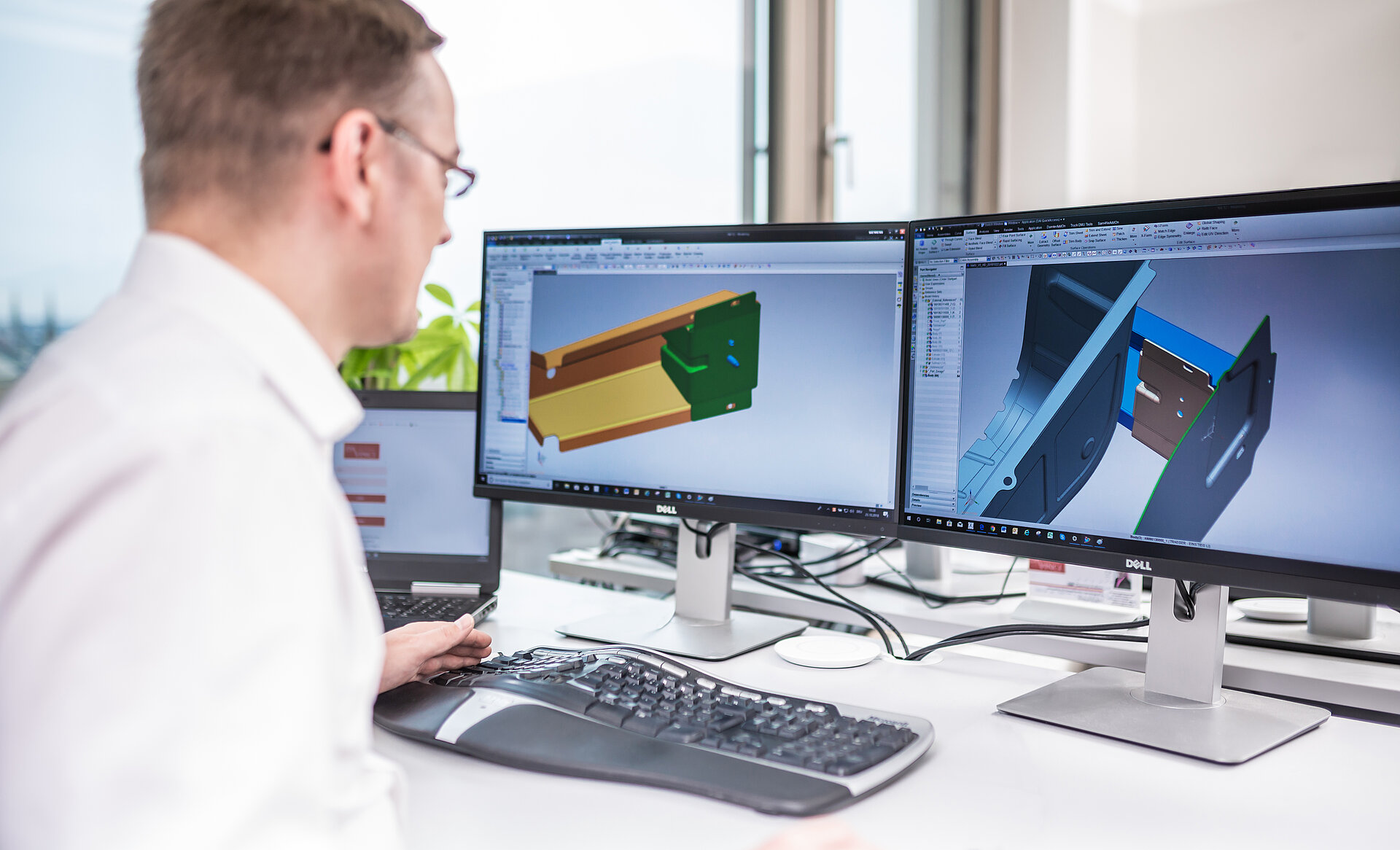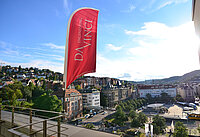
Design, calculate and develop solutions
Work in exciting projects and bring innovative products to life: As a designer you will design and develop technical solutions, product design drawings, perform calculations and collaborate closely with engineers and other specialists.
A wide variety of tasks, challenging projects and the possibility of working with state of the art technology await you with us. We place a great deal of value on your technical further development, and will support you in achieving your career goals.
What are the tasks of designers?
Designers are specialists in the field of engineering who are responsible for the development and design of components, products or machinery. You will usually be collaborating closely with experts from mechanical engineering, electrical engineering or automotive engineering in the development of innovative and functional solutions.
The specific tasks for designers can vary depending on the industry and the activity, but the following areas of responsibility particularly have a part to play:
- Development of concepts for new products or components which are adapted to the specific requirements and needs of the person placing the order
- Construction of prototypes for checking the functionality of the designs and identifying and correcting any problems in advance
- Production of detailed technical drawings and models using CAD (Computer-Aided Design)
- Carrying out calculations and simulations such as stress and deformation analyses, flow simulations or thermal calculations
- Planning of material requirements. This also includes selecting suitable materials and materials for development
Designers often work in interdisciplinary teams in which engineers with other specializations and system planners work together, for example. Together they develop innovative solutions and optimize existing designs.
We’ll provide you with a wide variety of work!
Our customers are companies from different industries with whom we realise a wide variety of projects together.
What can designers specialise in?
Designers have a wide variety of specialisation opportunities in their profession. Design is a crucial area in many different industries, and plays a decisive role in the development of new technologies and innovations - therefore creating a wide variety of specialisation opportunities.
For example, specialisation in mechanical engineering is particularly popular, but electrical engineering, automotive engineering and the aerospace sector also provide exciting specialisation opportunities for designers who wish to expand their knowledge. Finding the right specialisation depends on the designers’ individual interests, skills and the industry that they wish to work in.
Which requirements should designers bring with them?
Successful designers bring a number of prerequisites and skills into their everyday working life.
These include, for example: Technical expertise and in-depth knowledge of CAD software, plus knowledge of administration, human resources, materials science and manufacturing. Good knowledge of mathematics is also essential for working as a designer, since complex calculations need to be made and technical problems have to be solved.
There are also important soft skills such as creativity, spatial imagination capability, problem-solving skills, and also reliability and resilience. Since designers usually work in multidisciplinary teams and have to collaborate effectively with other specialist departments, being able to work in a team is also very important in this profession.
Which career opportunities are available for designers?
Designers have a wide variety of career opportunities in different areas. In addition to all of the specialisation options, designers can successfully steer their career path in certain directions by means of targeted further training and acquiring new skills.
Particularly experienced designers, for example, have the opportunity to be promoted to management positions and lead entire teams or projects.
For designers with more of an affinity for the academic world, research or teaching could also be the right choice - whereby they can pass on their knowledge to future generations of designers at universities.
Some designers also decide at some point to become self-employed and establish their own design company.


